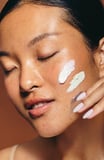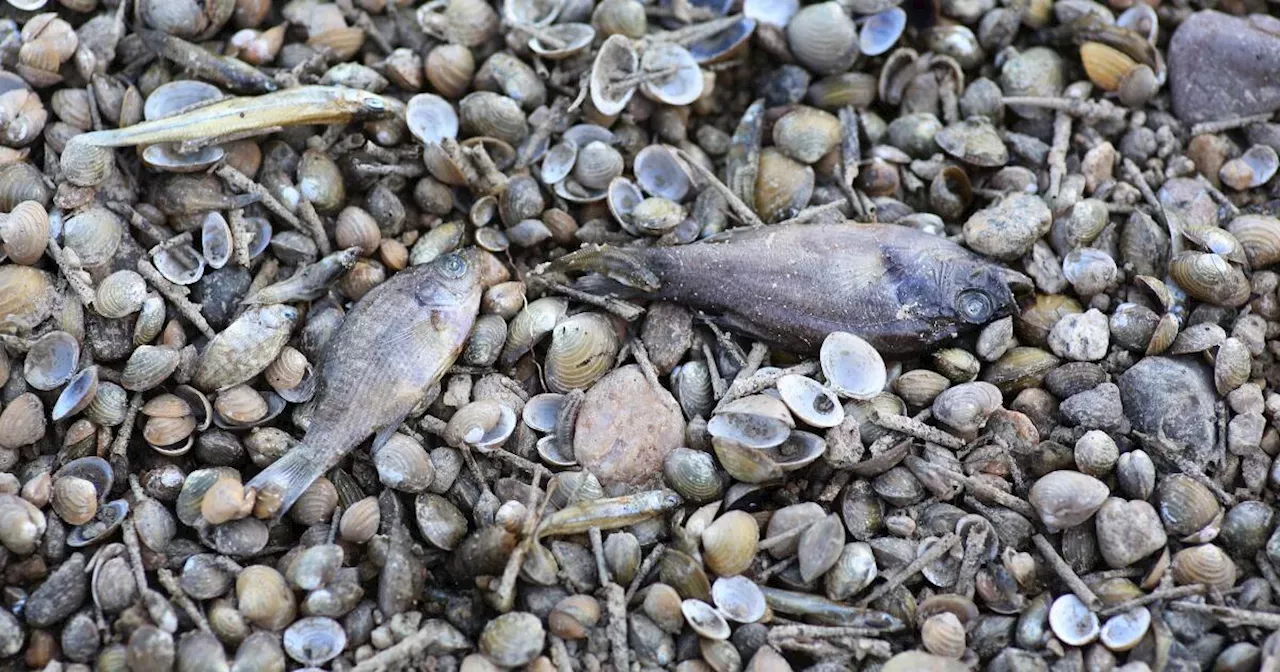No matter how well-versed you are in the beauty world or how much you know about the latest and greatest ingredients and products , you've likely heard the term "moisture barrier" on Instagram or TikTok — especially in the context of damaging it. But what does that mean exactly? And how do you make sure your moisture barrier stays intact? In a word: lipids. We spoke to board-certified dermatologist Sherry Ingraham, MD, to break down exactly what you need to know about lipids and your moisture barrier, along with the lipid-packed products that will be your holy-grail skin saviors.
Keep scrolling to learn more and to shop the products that will keep your skin in tip-top shape. Sherry Ingraham , MD, is a board-certified dermatologist and cofounder and codirector of Advanced Dermatology. What Is the Moisture Barrier? "The moisture barrier is the outer layer of your skin that protects against dehydration and environmental irritants, and seals in hydration," Dr.

Ingraham tells PS. "The barrier is made up of the skin's natural oils and the binds that they form between your skin cells." Basically, it's that top layer on your skin that keeps all the harmful stuff out, and the good stuff in.
So when it gets damaged, your skin is all the more vulnerable. The moisture barrier is made up of the naturally occurring fats found in the skin, called lipids. These fats form the links between the cells to keep water within the skin.
What Harms Your Moisture Barrier and What Are the Symptoms? As we age, the natural lipid production in our skin slows down. "Nearly 60 percent of skin's natural lipids disappear by age 40," Dr. Ingraham says.
In the same way that the amount of collagen our body produces decreases over time, hydration is also affected by age, so it gets more and more important both to protect the moisture barrier and supplement it with external lipids. Aside from the simple fact that aging is inevitable, there are a few other things that contribute to the breakdown of your moisture barrier. "Exposure to environmental aggressors such as pollution and sun exposure, especially without wearing SPF , can dehydrate the skin and damage the moisture barrier," Dr.
Ingraham says. "Additionally, overexfoliating or using products that are harsh on your skin, such as alcohol-based products and overly abrasive scrubs, can damage the moisture barrier. Lastly, failing to properly moisturize can lead to a weakened moisture barrier.
" So how do you know if you're dealing with a messed-up moisture barrier? You'll likely feel the symptoms of dehydration: tightness, dryness, itchiness, or sensitivity. Your skin may also appear red, flaky, or irritated. What Types of Lipids Are There and How Do They Help Repair the Moisture Barrier? There are three components within the epidermal lipid family: ceramides , cholesterol, and fatty acids.
According to Dr. Ingraham, ceramides make up 50 percent of the skin's overall composition. "They work as the cement to keep the skin's building blocks together, lock in hydration, and promote healthy moisture barrier function," she says.
Cholesterol is an emollient and a water-binding agent noted for its ability to improve skin elasticity. Fatty acids work to maintain balance within the moisture barrier, and can help to solve skin conditions such as eczema , dermatitis , and psoriasis . In essence, the three lipid components are what give us that youthful, dewy glow — so when there isn't enough of it, things start to go south.
"Without enough lipids to maintain a well-nourished moisture barrier, the moisture that keeps the skin looking hydrated, youthful, and plump evaporates through a process called transepidermal water loss, leaving skin dehydrated," Dr. Ingraham says. Over time, this means decreased elasticity and more noticeable fine lines and wrinkles.
Dr. Ingraham notes, "By adding in a skin-care product that includes lipids, patients can promote hydration in the short term while also preventing common signs of aging in the long term." Why Should You Use a Combination of the Three? While using each component on their own is great, when you combine ceramides, fatty acids, and cholesterol together, they work in tandem to maintain optimal moisture barrier balance and health.
"These three compounds play a crucial role in cell turnover, barrier function, and cellular repair," Dr. Ingraham says. "While dry skin is shown to be ceramide deficient, aging skin exhibits a cholesterol deficiency, so it is important to include all of these ingredients in your skin care to maximize the hydration and antiaging benefits that come from protecting your moisture barrier.
" You may also notice when you're looking for products that a ratio is included — usually something along the lines of 1:2:1. This tells you the percentage of each ingredient found in the product. "Clinical studies have shown that a treatment containing ceramides, cholesterol, and fatty acids at an optimally balanced ratio of one-two-one is ideal for treating the needs of chronologically aging skin," Dr.
Ingraham says. "At this formulation, the product works to refill essential skin lipids, restore the external skin barrier, and support skin's natural repair functions." What Should You Look For in Your Products? Dr.
Ingraham advises to look specifically for products that have all three ingredients — especially those with cholesterol as the dominant ingredient (meaning with the highest percentage). She also says it's important to not only apply essential lipids topically, but to also include them in your diet. Things like salmon, ground flax seeds, walnuts, and avocados are rich in fatty acids and omega-3s.
Best Skin-Care Lipids Best Lipid Moisturizer For Dry Skin SkinCeuticals Triple Lipid Restore 2:4:2 ($155) SkinCeuticals Triple Lipid Restore 2:4:2 is the gold standard of lipid-packed products. It has that ideal ratio of 1:2:1 and absorbs quickly into the skin for an immediate glow that will show long-term benefits. "SkinCeutials Triple Lipid Restore is an ideal product to use as it enhances skin moisture and barrier function with key lipids: ceramides, cholesterol, and fatty acid," Dr.
Ingraham says. "And, because it is a cholesterol-dominant cream, it will not only accelerate barrier recovery but also improve the appearance of skin tone and help to give the skin a brighter more radiant appearance." Best Lipid Moisturizer For Sensitive Skin Renée Rouleau's Phytolipid Comfort Creme ($70) People with sensitive skin will love Renée Rouleau's Phytolipid Comfort Creme.
It's just the right consistency (not too thick, not too thin) and has a few especially calming ingredients that help manage dry skin. Think: algae extract, beta-glucan, and sunflower oil. Best Lipid Complex Marie Veronique Barrier Lipid Complex ($95) The Marie Veronique Barrier Lipid Complex has a superadvanced formula — in addition to the ceramides, cholesterol, and fatty acid trio, it contains phosphatidyl serine, a phospholipid that has been shown to slow wrinkling.
Best Lipid Cream = Skinfix Barrier+ Triple Lipid-Peptide Face Cream ($54) The Skinfix Barrier+ Triple Lipid-Peptide Face Cream, which is 95 percent naturally derived, is chock-full of active ingredients and nutrients. In addition to the three essential lipids, it boasts seaweed hyaluronate and lily root to optimize hydration. Use it with a hydrating serum for an extra boost of moisture.
Aviel Kanter is the director of branded content for Vox Media, and oversees lifestyle content across the portfolio of brands. She manages a team of editors that writes articles in the wellness, fitness, beauty, fashion, health, entertaining, pets, and finance categories. She is also a beauty enthusiast and contributes many articles to the PS Beauty editorial site.
.



















